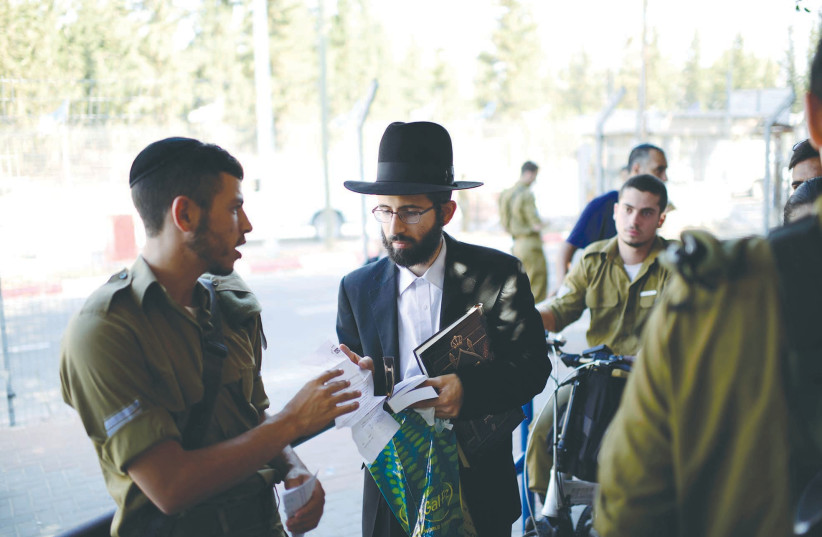Coalition members plan to move forward with the proposed conscription law when the Knesset returns from its summer recess, KAN reported on Thursday.
The controversial bill was at the center of a letter sent to Prime Minister Benjamin Netanyahu by the haredi (ultra-Orthodox) parties last week, threatening to disband the government if the bill were not passed. It would expand exemptions from IDF service for yeshiva students.
The current law, which was passed in 2014 and technically expired on June 30, was granted an extension by the government until March 31, 2024, the date on which the coalition said it would pass a new law.
The Movement for Quality Government in Israel (MQG) had appealed to the High Court of Justice in July to order the IDF to start drafting haredi men. However, the court accepted the state’s argument that the law gives the IDF 12 months to draft conscripts whose exemptions have run out, meaning there is nothing unlawful about the decision not to immediately begin drafting eligible haredi men.
The court had originally deemed the current draft bill unconstitutional in September 2017, saying that it was too sweeping and unequal. The main impact of the proposed new bill is to lower the age of permanent exemption from 26 to 22.

Purpose of the bill
The purpose of the bill is to promote haredi integration into national service and the workforce. It will also include an increase in benefits to those who are drafted or in the reserves.
The report said that the government anticipates a heavy public response to the bill and that even those who support the coalition would be hesitant to support it. It added that some in the Likud fear that the haredi parties might indeed dissolve the coalition and join forces with MK Benny Gantz’s National Unity Party.
It is anticipated that an outline of the bill will be submitted shortly before the end of the Knesset’s summer recess on October 15, with the hope of passing the full bill shortly thereafter, as per comments from Cabinet Secretary Yossi Fox.
The current National Service Law, which passed in 2014 and in 2015, sets the number of haredi draftees to the IDF per year and sanctions yeshivot that do not meet these numbers. However, as mentioned, the High Court deemed the bill unconstitutional, saying it was unequal.
The court initially gave the Knesset a year to amend the bill, but this was delayed 15 times due to the recurring elections. Because of this, formulators of the new bill have been careful to toe the line regarding what may be considered too sweeping for the court, and therefore be struck down in an inevitable future hearing.
In general, the idea of the proposed legislation is to enact a new policy of choosing equality of the “economic burden” over the “military burden” by lowering the exemption age for haredi men from 26 to between 21-23, thus allowing them to enter the workforce earlier, while minimizing the inequality to soldiers by shortening the length of service and providing benefits for those who do serve.
Gantz tweeted in response to the reports that “Netanyahu is once again blackmailed and motivated by political considerations while being ready to sacrifice the people’s army and Israeli society.”
Yisrael Beytenu head Avigdor Liberman also shot back at the report, tweeting a photo of a soldier accompanied by a quote from Construction and Housing Minister Yitzhak Goldknopf (United Torah Judaism) that read: “The one who studies Torah has a harder time than the one who goes to the frontlines.”
Eliav Breuer contributed to this report.
